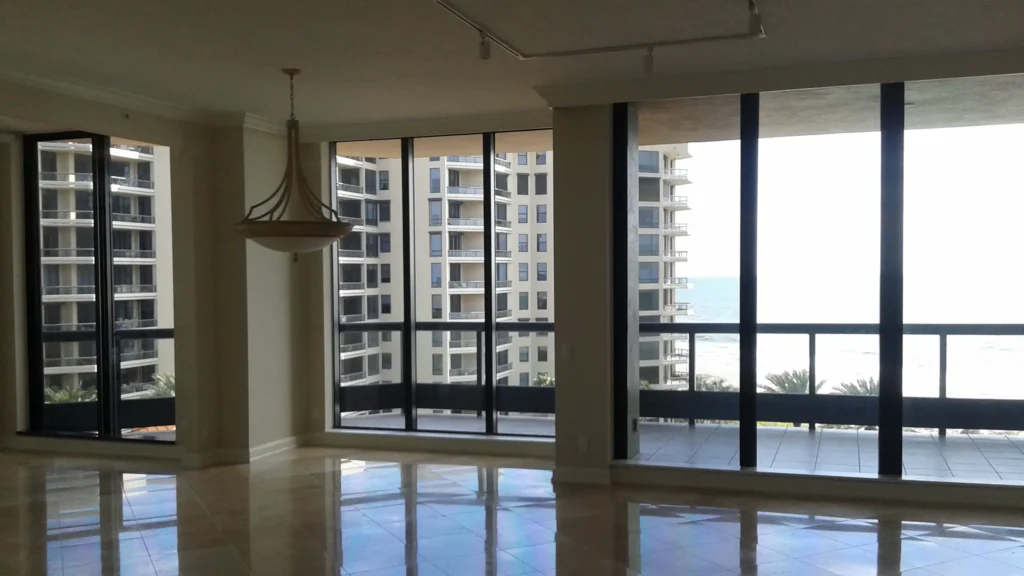
In today’s competitive business environment, companies are constantly looking for ways to improve efficiency and reduce operational costs. One of the often-overlooked solutions is window tinting for offices. While it may seem like a minor enhancement, professionally installed window film offers a multitude of benefits that can lead to substantial long-term savings. From energy efficiency to increased employee comfort and security, window tinting is a practical investment with impressive returns.
The Rising Need for Energy Efficiency
One of the most compelling reasons for office window tinting is energy savings. Large office buildings with expansive glass windows often experience significant heat gain, especially during the summer months. This forces air conditioning systems to work harder to maintain a comfortable indoor temperature, leading to higher energy bills.
Window tinting reduces the amount of solar heat entering a building by reflecting a portion of the sun’s rays. By lowering the internal temperature, offices can reduce their dependency on HVAC systems. Over time, this leads to a marked decrease in energy consumption, translating to lower utility bills.
Enhancing Comfort for Employees
A comfortable working environment is essential for productivity. Excessive sunlight can cause glare on computer screens, eye strain, and hotspots that make certain areas of the office uncomfortable. These issues can negatively affect employee performance and morale.
Window tinting for offices significantly reduces glare, filters out harsh sunlight, and helps maintain a consistent indoor temperature throughout the day. Employees are less likely to experience discomfort, which contributes to a more focused and productive work atmosphere.
Protecting Office Interiors
Sunlight doesn’t just heat up a room—it also damages interiors over time. Prolonged exposure to UV rays can fade carpets, curtains, furniture, and even electronic devices. Office equipment and decor are costly, and replacing them frequently due to sun damage is an unnecessary expense.
Tinted window films block up to 99% of UV rays, helping to preserve the appearance and longevity of interior assets. This extends the lifespan of office furnishings and reduces the need for premature replacements, saving money in the long run.
Boosting Office Privacy and Security
Security and privacy are major concerns for businesses, especially those dealing with sensitive data or high-value equipment. Clear glass windows can expose the interior of an office to passersby and potential thieves.
Installing tinted films increases privacy by obscuring the view from the outside without compromising the natural light coming into the office. Additionally, certain types of window tinting provide shatter resistance. In the event of an attempted break-in or an accident, the film holds the glass together, making it more difficult for intruders to gain entry and reducing the risk of injury from flying glass shards.
Reducing Maintenance Costs
Cleaning large glass windows regularly can be both time-consuming and expensive. Dust, smudges, and streaks are more visible on untreated glass, especially when sunlight hits them at certain angles.
Window tinting reduces the appearance of these imperfections and may even contain dirt-repelling properties depending on the film type. This means windows stay cleaner for longer, and fewer professional cleanings are required, leading to lower maintenance expenses over time.
Environmental Benefits and Sustainability
As sustainability becomes a growing priority for companies worldwide, businesses are seeking eco-friendly solutions that align with their values. Window tinting contributes to greener office operations by reducing the need for excessive energy consumption.
Less reliance on HVAC systems means a lower carbon footprint. Additionally, some window films are made from recyclable materials, further enhancing their sustainability appeal. Investing in window tinting shows a company’s commitment to environmental responsibility, which can enhance brand reputation and appeal to eco-conscious clients and partners.
Compliance with Building Regulations
Modern commercial buildings must adhere to a variety of building codes and regulations, many of which involve energy efficiency standards. Window tinting can help buildings meet these requirements without the need for costly renovations or upgrades.
In some cases, government rebates or incentives may be available for businesses that install energy-efficient improvements such as window films. This further reduces the initial investment cost and improves the overall return on investment.
Improving Aesthetic Appeal
Window tinting not only enhances performance but also adds a sleek, modern appearance to office buildings. Depending on the type of film chosen, businesses can achieve a uniform, polished look that enhances curb appeal and gives a professional impression to visitors and clients.
Decorative window films are also available, offering customizable designs and frosted patterns that add a stylish touch to conference rooms, private offices, and common areas. This enhances the overall ambiance of the workplace, making it more inviting and visually appealing.
Long-Term Financial Savings
While the upfront cost of professional window tinting may seem like a significant investment, the long-term financial benefits far outweigh the initial expenditure. From reduced energy bills and maintenance costs to extended equipment lifespan and potential tax incentives, the savings accumulate over time.
Furthermore, by creating a more comfortable and secure environment, businesses may experience improved employee retention and satisfaction. These intangible benefits, although harder to quantify, contribute significantly to the financial health of any organization.
Choosing the Right Window Tinting Solution
Not all window films are created equal. Businesses should consult with professional installers who can assess the building’s specific needs and recommend the most suitable products. Factors to consider include the building’s orientation, local climate, privacy needs, and aesthetic preferences.
Options range from solar control films and decorative films to safety and security films, each offering unique advantages. A professional consultation ensures that the chosen solution provides maximum value and performance.
Conclusion
Investing in window tinting for offices is a strategic decision that delivers a wide array of benefits. From cutting energy costs and protecting valuable assets to improving employee comfort and enhancing building security, the advantages are clear and measurable.